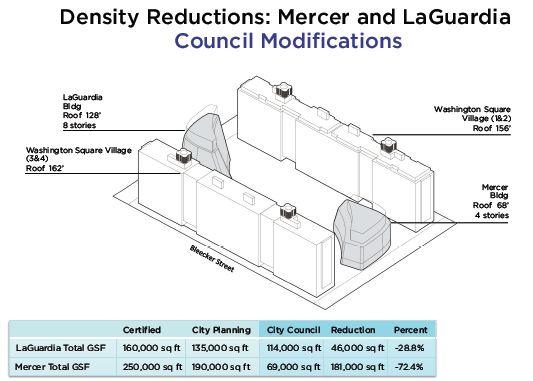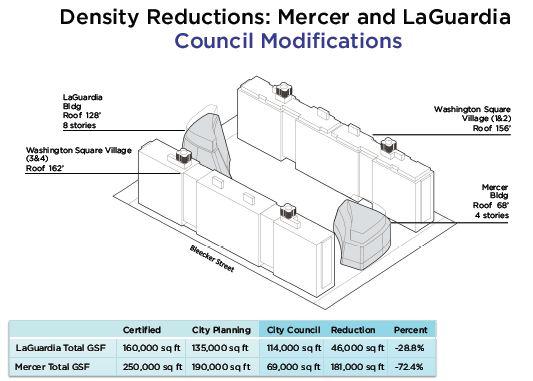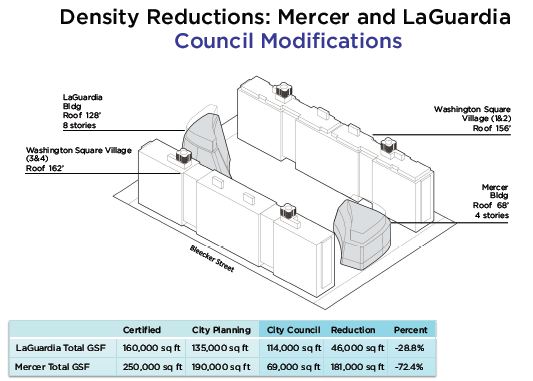NEW YORK—Councilmembers grilled New York University representatives at City Hall Tuesday before agreeing to a modified expansion plan for new buildings in Greenwich Village.
The committee vote precedes a full council vote on July 25.
The plan proposes constructing four new buildings on two superblocks in a rectangle between West Third Street, LaGuardia Place, West Houston Street, and Mercer Street. It was previously modified before being approved by the City Planning Commission, which reduced the total square feet by 325,000 square feet. The new changes further reduce the total square feet by 212,000 square feet on the plan.
The total area, pending City Council approval, now stands at slightly more than 1.9 million square feet, with a little more than 1 million square feet above ground. During a months-long land use process, the plan has been reduced a total of 21.9 percent, or 537,000 square feet.







